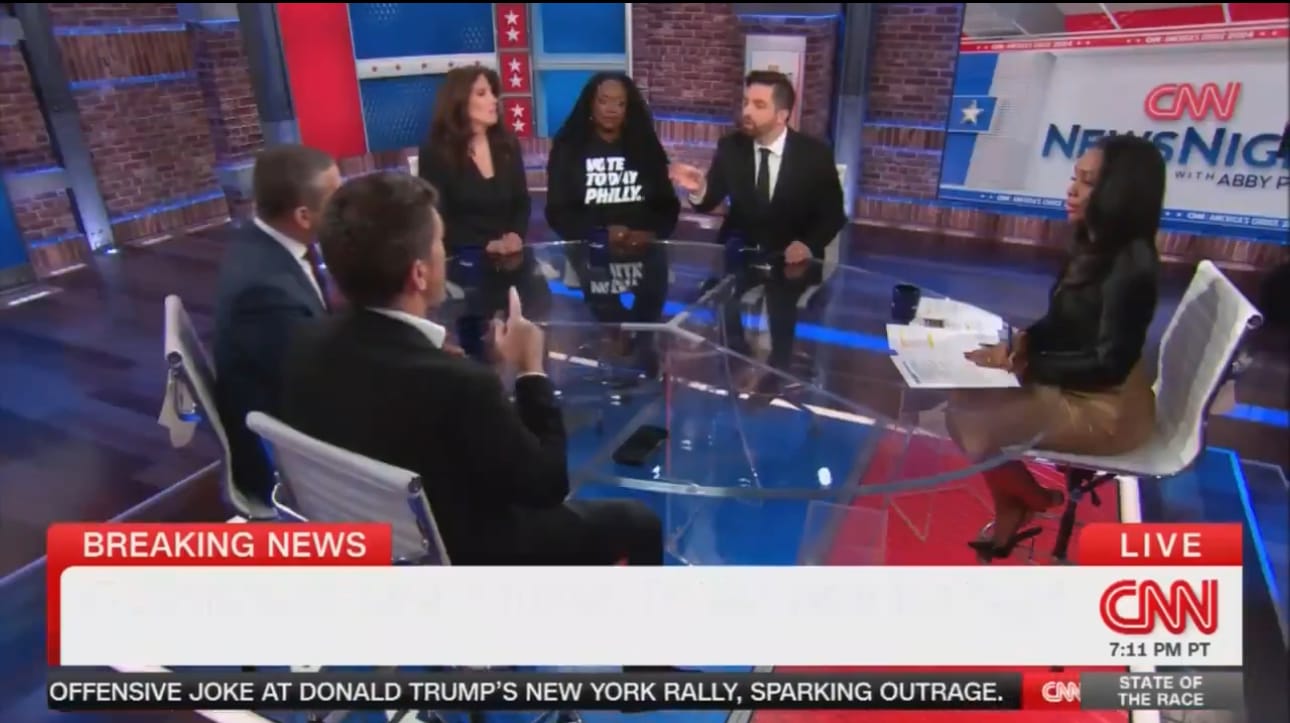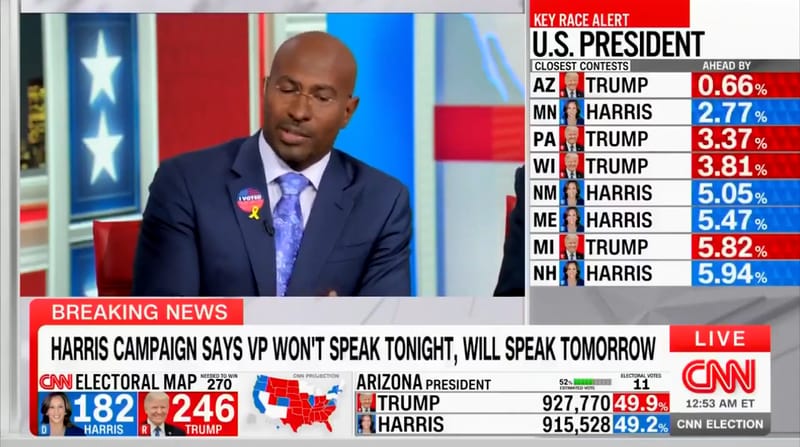CNN's Ban of Ryan Girdusky Sparks Backlash Over Political Correctness and Free Speech
In a recent incident that has ignited a fiery debate over the boundaries of free speech and political correctness, CNN made headlines by banning conservative commentator Ryan Girdusky from the network. The decision came after Girdusky, during a contentious segment on "CNN Newsnight with Abby Phillip," directed a
In a recent incident that has ignited a fiery debate over the boundaries of free speech and political correctness, CNN made headlines by banning conservative commentator Ryan Girdusky from the network. The decision came after Girdusky, during a contentious segment on "CNN Newsnight with Abby Phillip," directed a remark towards Mehdi Hasan, a Muslim journalist, saying, "I hope your beeper doesn’t go off." This statement was interpreted by many as an offensive reference to the tragic incidents involving Hezbollah members killed by exploding pagers, suggesting Hasan might sympathize with or be affiliated with the group due to his support for Palestinian causes.
The backlash has been swift and vocal, particularly on platforms like X (formerly Twitter), where users and commentators have accused CNN of an overreaction, stifling free speech, and displaying a bias towards liberal sensitivities. Critics argue that Girdusky's comment, while arguably in poor taste, was an attempt at dark humor or a pointed critique rather than a direct threat or hate speech. They point out that in the arena of political debate, where thick skin is often necessary, such comments might be seen as par for the course, especially when contrasted with other controversial statements made on various media platforms without repercussions.
#WATCH: Ryan Girdusky engages in a heated debate with Mehdi Hasan, during which he makes a beeper joke after being labeled a Nazi. He is then promptly taken off the air and dismissed from CNN. #cnn #ryangirdusky #mehdihasan pic.twitter.com/elAgDcAkKd
— VIRTUE.NEWS (@virtuemediacorp) October 29, 2024
The incident has reignited the debate on what constitutes acceptable political discourse, especially in televised debates where emotions and stakes are high. Critics of CNN's decision argue that this move exemplifies a broader trend where liberal media outlets are seen as intolerant of conservative humor or critique, particularly when it touches on sensitive topics like Middle Eastern conflicts. They contend that if the goal is to foster a robust democracy, then the public sphere, including media, should be a marketplace of ideas where even the most controversial or offensive views are debated, not silenced.
On the other hand, supporters of CNN's decision emphasize the importance of maintaining a respectful dialogue, especially on-air where the influence on public opinion is significant. They argue that while free speech is fundamental, it shouldn't come at the cost of demeaning or threatening individuals based on their ethnicity or religion. They highlight that CNN's action was not just about protecting Hasan from verbal attacks but about setting a standard of discourse that doesn't normalize or trivialize violence or ethnic hatred, even in jest.
Sharing @CNN’s statement and a quick message from me about what happened on tonight’s show.
— Abby D. Phillip (@abbydphillip) October 29, 2024
I take this very seriously and want to again apologize to @mehdirhasan and I hope he’ll join us another time. pic.twitter.com/O9l0Ftv5NZ
This event has also sparked discussions on the double standards in media, where some commentators and viewers have pointed out that critiques of conservative figures or policies often go unchallenged or are framed humorously without similar backlash. This has led to accusations that CNN's decision reflects a broader cultural bias against conservative wit or criticism, particularly when it veers into controversial territory.
As this story unfolds, it underscores the complex interplay between free speech, political correctness, and media ethics. While CNN aims to maintain a line of civility, critics warn of the slippery slope where humor, satire, or pointed critique might be misconstrued as hate speech, potentially chilling open discourse. The incident with Girdusky serves as a microcosm of these larger societal debates, with implications for how media, politics, and public interaction will evolve in an increasingly polarized world.




